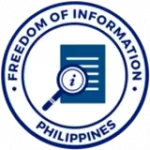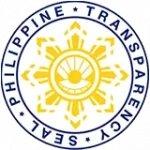Water, Sanitation, And Hygiene (WASH)
The WASH (Water, Sanitation, and Hygiene) program of MSSD plays a crucial role in addressing the complex humanitarian situation in the Bangsamoro Autonomous Region in Muslim Mindanao (BARMM). With the Region being highly exposed to armed conflict, violence, and natural disasters, unexpected and recurring displacements occur in various parts of the area.
MSSD recognizes the importance of strengthening its Disaster Risk Reduction and Emergency Assistance Program (DRREAm), which includes relief assistance through welfare goods provision, the Bangsamoro Critical Assistance for Indigents in Response to Emergency Situations (BCARES), shelter support, and WASH interventions.
These initiatives align with MSSD’s mandate to care for, protect, and rehabilitate disadvantaged individuals, families, and communities, ensuring they receive social welfare assistance and development interventions.
In disaster response, WASH is a critical component of social protection programs. Its primary objective is to alleviate human suffering caused by disasters and social disorganization. Displaced populations are particularly susceptible to illness and death from diseases such as diarrhea and infectious diseases, often associated with inadequate water supply, poor sanitation, and unhygienic practices.
Implementing WASH interventions helps mitigate public health risks and prevent further loss of life in post-disaster scenarios. It is as vital as addressing other immediate life-saving needs of distressed communities.
Under the Disaster Response and Management Division (DRMD), the WASH Intervention aligns with the Ministry’s commitment to uplifting the lives of the Bangsamoro people and ensuring access to quality services for human development. The program aims to mitigate and respond to calamities, conflicts, and other unexpected events, reducing vulnerabilities to armed conflicts, health-related shocks, weather disturbances, and their harmful impacts.
The WASH program focuses on providing culturally appropriate services tailored to the specific needs of affected individuals and communities. This year, it has facilitated access to vital resources for 1,555 individuals and communities residing in transitory emergency camps or as home-based internally displaced persons (IDPs).
This includes ensuring safe drinking water for 6,729 individuals through water treatment supplies, repairing damaged water sources, and installing new water systems. Additionally, 4,905 people have benefited from improved sanitation facilities, which involve the installation of temporary latrines, provision of hygiene kits, and temporary safe disposal of human waste.
By prioritizing WASH interventions, MSSD aims to address the immediate needs of affected communities during emergencies or public health crises. Ensuring access to clean water, adequate sanitation facilities, and promoting hygiene practices not only prevents the spread of diseases but also contributes to the overall well-being and resilience of the Bangsamoro people in the face of adversities.


